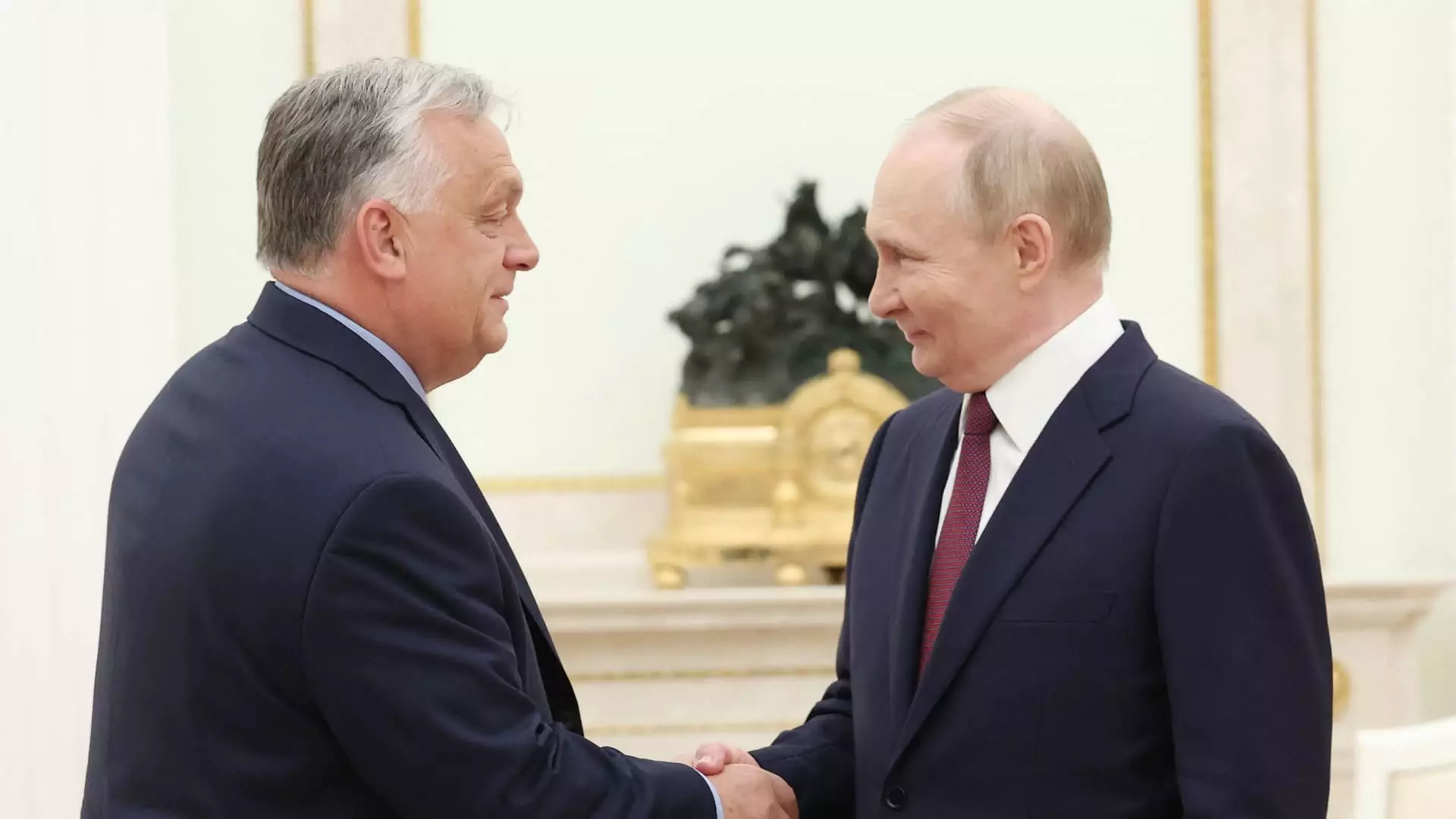Hungarian Prime Minister Viktor Orban has recently sparked controversy with his trip to Moscow to meet with Kremlin leader Vladimir Putin. This move has drawn criticism from the EU due to Hungary’s close ties with Russia, despite most Western countries severing relations with the nation following its invasion of Ukraine in February 2022.
Orban, who currently holds the EU’s rotating presidency, has positioned himself as a “peacemaker” while simultaneously opposing EU and NATO measures aimed at supporting Ukraine. Hungary’s decision to maintain working relations with Russia has set it apart from other Western countries, leading to tensions within the EU.
Orban’s visit to Moscow comes on the heels of a similar trip to Ukraine, where he met with President Volodymyr Zelenskyy to discuss bilateral relations and explore opportunities for peace talks. Despite calls for a ceasefire and diplomatic dialogue, the conflict between Russia and Ukraine remains unresolved.
European officials have expressed concerns over Orban’s actions, questioning his authority to represent the EU in his engagements with Russia. EU chief diplomat Josep Borrell emphasized that the trip was strictly a bilateral affair between Hungary and Russia and did not reflect the EU’s stance on the conflict.
Orban’s assumption of the EU’s rotating presidency has raised eyebrows, particularly with his stated goal of “making Europe great again.” This slogan, reminiscent of former U.S. President Donald Trump’s 2016 campaign, has sparked speculation about Orban’s intentions and the direction he aims to take during his term.
Orban’s controversial trip to Moscow has reignited debates about Hungary’s relationship with Russia, the EU’s stance on the conflict in Ukraine, and Orban’s role as a leader within the European bloc. As tensions continue to mount in the region, the need for diplomacy and cooperation remains paramount in seeking a peaceful resolution to the ongoing crisis.

Leave a Reply